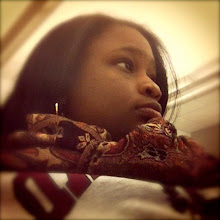 A maelstrom of sorts, the Internet has risen to dominate culture and society in less than a decade. Its power comes from being able to hold so much information and to provide that information in record-breaking time. Today, it seems all-powerful. It’s definitely a force to be reckoned with.
A maelstrom of sorts, the Internet has risen to dominate culture and society in less than a decade. Its power comes from being able to hold so much information and to provide that information in record-breaking time. Today, it seems all-powerful. It’s definitely a force to be reckoned with.In my opinion, the Internet has become something that we NEED. We need it to stay connected not only to each other, but to vital information. So, who in this world could bring down this force that has been guiding our lives for years now? Bill Gates? Ben Cope? Ken Eudy? The Transformers? God?
Well, believe it or not...it was Michael Jackson. Yes, the King of Pop.
As Michael Jackson's living reign came to a close on June 25, he brought down some of the Internet with him. According to CNN.com, for almost two hours Google had trouble pulling up search results for Jackson-related queries. Blogs (such as TMZ and Perez Hilton, which first broke the news) had several outages and AOL Instant Messenger (AIM) was down for approximately 40 minutes. With an astounding 30% of tweets related to the incident, it’s not surprising the crash-prone Twitter-verse sputtered out.
Google Trends rated the Jackson story as "volcanic" as web teams tried frantically to overcome the unprecedented amount of traffic. Wikipedia had close to 500 edits to Michael Jackson's entry in less than 24 hours, causing a "temporary overload."
Not only was this social media/Internet overload unprecedented, it was a milestone for mobile Internet traffic. Because it was mid-afternoon on a Thursday, many used their cell phones to figure out what was going on. It was a news "feeding frenzy." Busy twitterers sent Michael Jackson-related terms to the top of the site’s Trending Topics list while news networks were clamoring to be the first to get any tidbit of information. People feel a need (or hunger) for such information. Many have recognized that being involved in social media is becoming more of a necessity than a personal preference.
So, when did you find out what happened? For those not connected to the social media world, the information may come much later. I realized this as I spoke with a family friend who was shocked when I broke the news to her that night. I was shocked, too. The world was a-buzz with the news but she had heard nothing about it. She revealed to me that she prided herself on not watching the news because she was tired of hearing "depressing crime stories." She refused to get on Facebook or any other social media site because she didn't want to make herself accessible in that way.
Now, this may be far-reaching but compare Michael Jackson to a natural phenomenon such as hurricane, tornado, flood, snowstorm, etc. (in my opinion he was just as big lol). Following a natural disaster, people who don't get the story in time could be in grave danger. Those who knew what was coming would quickly evacuate, leaving those "living under a rock" behind.
The digital divide is becoming wider and more polarizing everyday as the world becomes smaller and more connected. Social media has created a grade school-esque milieu. Those not connected are like the playground loners who wonder what everyone else is whispering about.
The digerati should focus on helping to connect people that are not able to be connected (those in remote areas and developing communities). The unconnected should help themselves and start listening in to what everyone is talking about.




